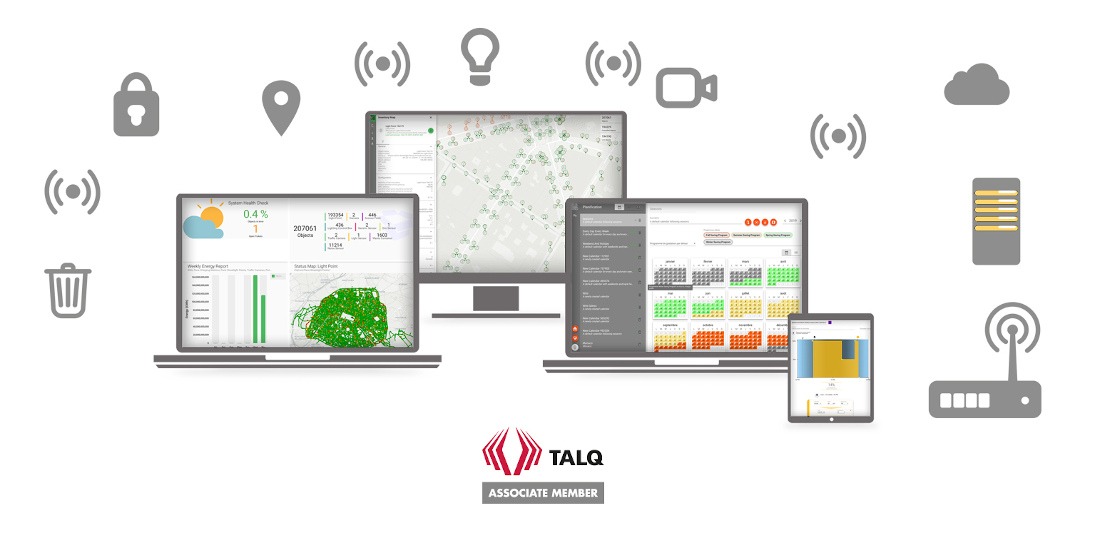Remote Management Platform
Content Management System (CMS) for Lighting network, Smart City and Smart Building
Witti offers a centralized software platform (CMS) which allows remote configuration, control, and supervision of lighting controllers as well as any other connected equipment such as motion or light sensors, water meters, water sensors. analysis of air quality, electric meters, sensors for waste containers, and much more. The data of each object (geolocation, consumption, operating time, transmitted power, breakdowns, maintenance operations, etc.) are stored there.

This platform, accessible from any computer or tablet via secure access, is an effective management tool for public lighting and any other connected application solution. The multiplicity of its functionalities allows the city manager to benefit from the following services:
- Control objects remotely and limit on-site interventions
- Being able to simultaneously manage an unlimited number of connected objects of different types (lights, sensors, meters, cameras, radars, etc.)
- Manage each object individually, assign it a setting that is specific to it according to the defined needs, while being able to modify the established settings at any time
- Optimize energy savings by dimming the power of the luminaires according to time slots, motion detection or variation in natural light
- Know in real time the operating status of objects by their identification on a map representation
- Optimize maintenance operations by geolocation, real-time diagnosis of any malfunction, and assisted management of maintenance tickets
- Receive alerts issued based on defined events for increased responsiveness
- Optimize operational management by establishing a dashboard and issuing analysis reports (energy consumption, energy savings, breakdowns, etc.) that can be personalized and exported
- Tasks automatization
- Interfacing by API the platform with other user systems (GIS, CMMS, …) to export or import data from one system to another
- Have a great flexibility in hosting data has been possible by the multi-cloud architecture (Microsoft Azure, Google Cloud Platform, OVH, Amazon Cloud, etc.)
This CMS is distinguished by its interoperability (TALQ Protocol) and constitutes a tool adapted to the multi-application management of the Smart City. It allows its manager to configure, control, supervise, analyze and act with increased operational efficiency in the service of the objectives of heritage protection, energy savings, safety and comfort expected by a city and its users.
